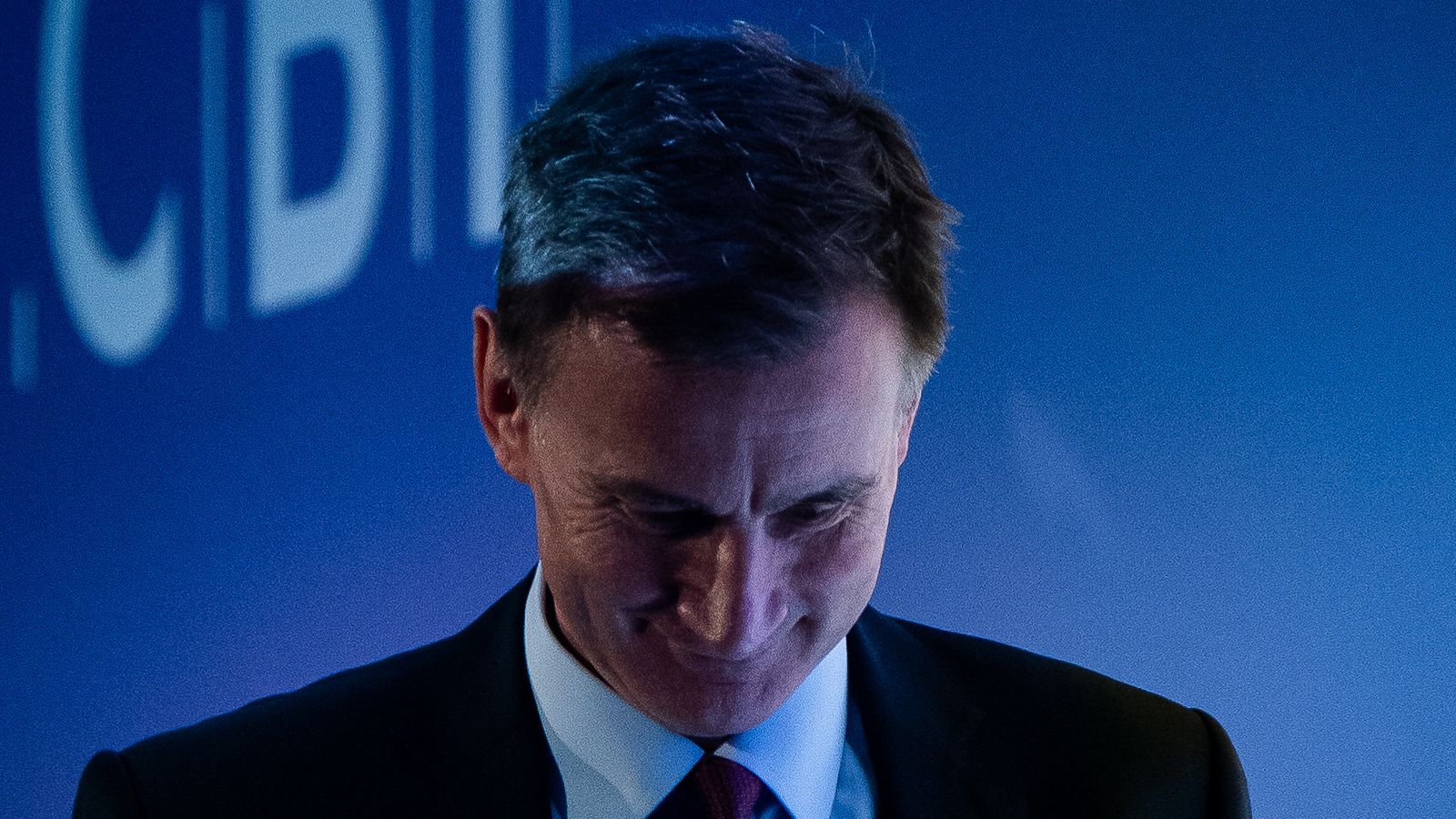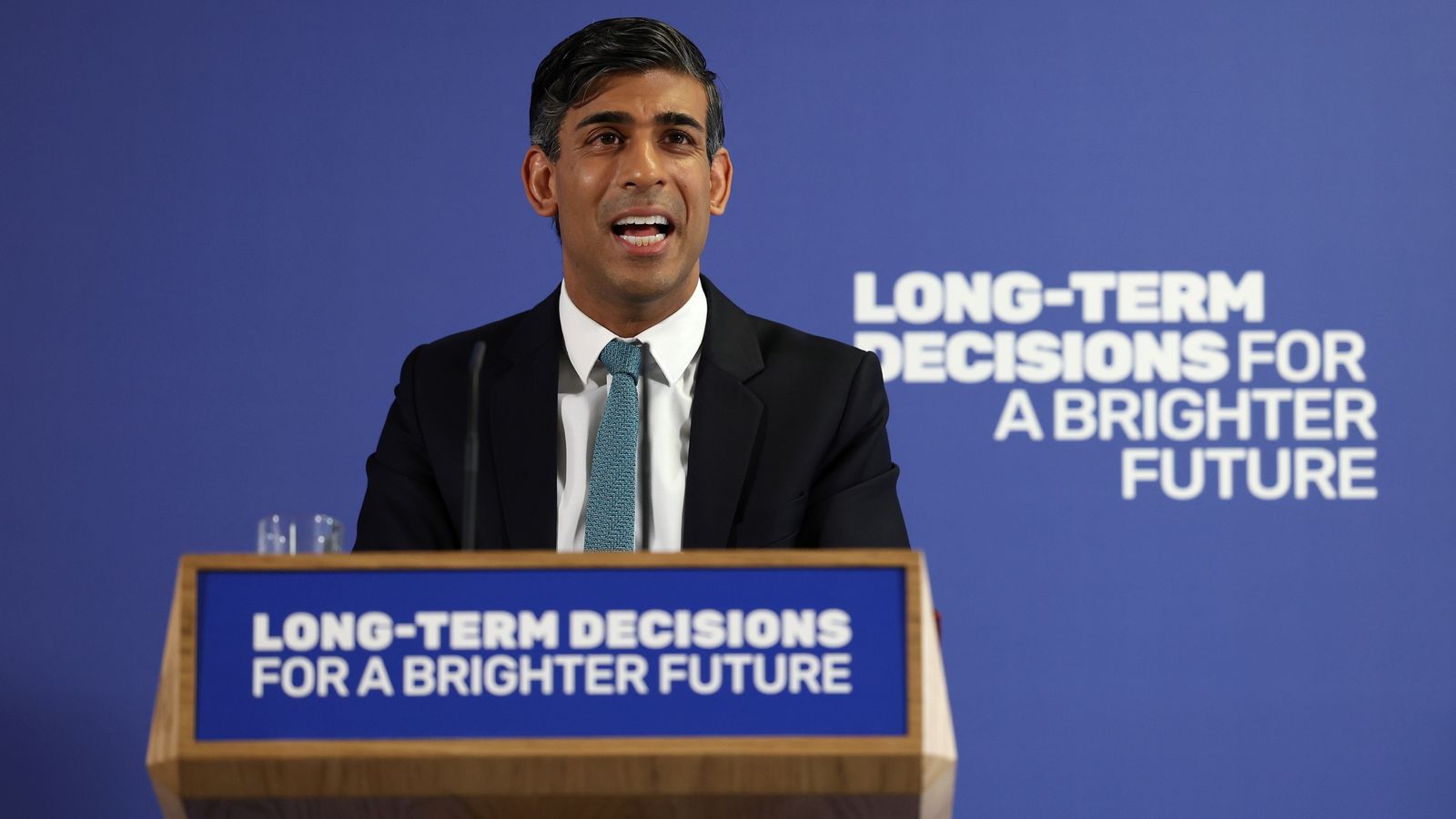The single most important chart in the autumn statement actually didn’t appear anywhere in the documentation released alongside the chancellor’s report.
But the chart below – tweeted separately by the Office for Budget Responsibility (OBR) after their report was published – is the one that will overshadow the coming year.
It shows the change in household disposable income year by year and what it depicts is, at least from the chancellor’s perspective, desperately depressing.
While on the bright side this measure of how much better or worse off we’re getting each year didn’t drop by quite as much as the OBR thought it would last year, British households have nonetheless faced the biggest annual drop in their disposable income since 1955.
Second, and more depressingly from the chancellor’s perspective, is the fact that the squeeze on living standards will not be over by 2024/25, election year.
It will, according to the OBR, persist – with living standards falling by 0.4% in real terms (that’s when inflation is taken into account) that year.
It’s hard to overemphasise the importance of this: people will be getting worse off, not better off, for even longer than previously forecast.
This makes plenty of logical sense: it’s the consequence of a lasting cost of living crisis and of the fact that Bank of England interest rates are considerably higher today than was forecast back in March.
Please use Chrome browser for a more accessible video player
Even so, this is likely to be the data point that tempers much of the debate in the coming months.
It also underlines the real story behind today’s autumn statement: that far from looking like it’s bouncing back from its recent dip, the economy is in a weaker-than-expected state. And despite the various measures thrown at it by Jeremy Hunt, it is forecast to remain weak for some time.
Read more:
Key announcements from chancellor at a glance
Calculator: Are you worse or better off?
Please use Chrome browser for a more accessible video player
Part of the problem facing every chancellor is that there is only so much you can do.
That the British economy is weak cannot be laid entirely at the government’s door. All of Europe is facing a dip right now, with Britain actually faring a little better than some other economies, most notably Germany.
But reading through the autumn statement, you’re left with the impression of a man pulling as many levers as possible but failing to get the machine working.
Please use Chrome browser for a more accessible video player
At any other period in British history, the introduction of a policy like full expensing – where businesses can offset their investment in machinery and equipment against their tax bills – would potentially boost economic activity.
But investors are so nervy about the economy right now – not to mention confused about whether this government is pro or anti net zero, big transport projects and European trade – that they’re less inclined than normal to put cash into the economy.
Moreover, while the chancellor proclaimed that this measure represented the biggest business tax cut in history, it comes hot on the heels of the single biggest increase in the corporate tax rate in history.
Please use Chrome browser for a more accessible video player
And that theme – of taxes being cut but not enough to disguise the fact that they’ve just been raised – ran through today’s event.
While the national insurance cut will certainly be seen in working households’ wallets, it will be swamped by the other tax rises consigned on Britons by, well, Jeremy Hunt and his predecessor as chancellor, Rishi Sunak.
Be the first to get Breaking News
Install the Sky News app for free
The upshot is that the overall tax burden is not falling: it’s rising. Indeed, it’s still forecast to hit the highest level since at least 1948. It’s still going to be considerably higher at this election than it was in the last one.
All of this stuff must frustrate the chancellor and PM enormously. But it is the reality they will have to grapple with as they try to persuade voters to back them in the coming year.










